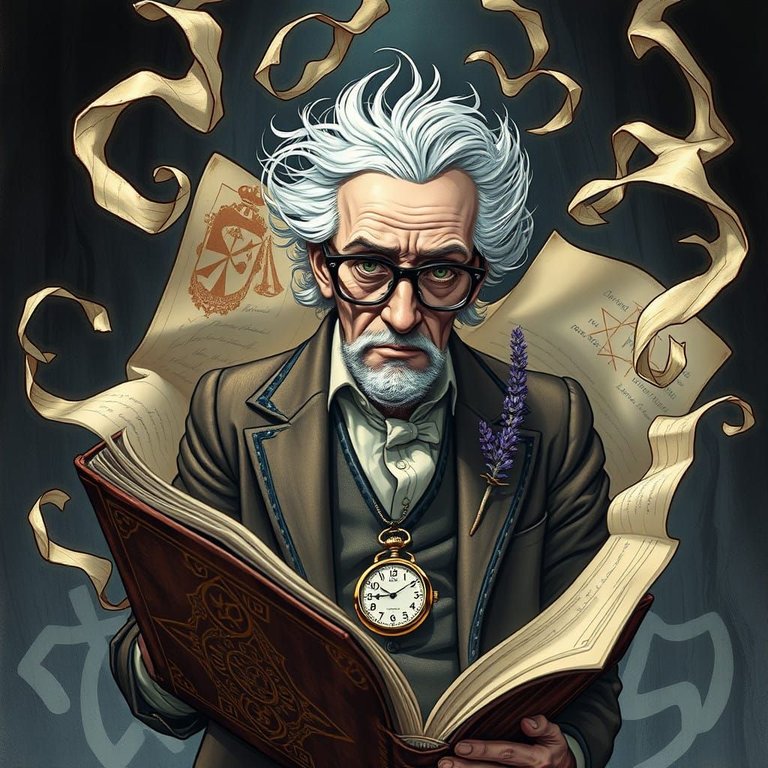“20:25 RASGANDO EL PAPEL”
***
El pensamiento es una maravillosa máquina de creación. Una suerte de navecita abstracta piloteada por nuestra conciencia y ésta a su vez es una vocecita que intentar decir sin voz que se pueda oír y sin embargo allí está; gritando silencios o susurrando gritos, cómo ustedes prefieren. Rubens mira apenas el líquido ambarino en el vaso de vidrio, lo apura castigando su garganta con el fuerte licor, aún no se acostumbra. Estar solo le permite reaccionar con una fea mueca en el rostro ante el golpe del trago. El humo de un malboro rojo se arremolina en sus arrugas de la frente y se eleva hasta las comisuras de las lágrimas de la lámpara que ya debe tener cincuenta años colgando en aquella habitación apenumbrada. Otro sorbo, otra mueca. Su voz interior se pasa en las manecillas del reloj de pared, allí los minutos se deshacen en el péndulo que dibuja lunas en su cansado vaivén. Rubens piensa; aquel ajado sueño trocado en presagio decía que justo aquella noche a las 20:25 pasaría. Destapa la botella, completa el vaso mientras la alfombra de la entrada ahoga el ruido de unos pasos que se aproximan…

Era ese visitante que se cuela sin avisar y se acomoda en las sombras frente a Rubens, que no necesita verlo para reconocer a ese fantasma familiar que ahora le acompaña en la habitación, siempre lejos de la luz de la vieja lámpara. Conoce muy bien a esa sombra silenciosa que siempre ha sido su confidente más íntimo, el guardián que no deja salir todos los esqueletos escondidos en su armario, el que escucha y barre todas sus miserias debajo de la alfombra; el verdadero amigo al que llamarías desesperadamente para deshacerte de un cadáver. En definitiva, su cómplice, pero también el artífice de todas sus alegrías y desgracias. Rubens podía escuchar cómo garabatea y toma notas en su cuaderno, seguramente describiendo su próximo movimiento con detalle. Después de más de medio siglo, ahora le hacía dudar de cada una de sus decisiones, por si realmente eran suyas o solo una parte del guion creado para él por la sombra, como si esta siempre estaría presente y pudiera anticipar sus movimientos. Rubens agarró el vaso lleno, dispuesto a arrojárselo con rabia, pero de nuevo sintió que los hilos tiran de él y, sin poder evitarlo, derramó el contenido por su garganta, ocultando con falsa dignidad cualquier mueca de disgusto ante su invitado.
Ese que ahora sabía qué hacía las veces de titiritero mientras lo mantenía perdido en las hojas de su cuaderno, donde Rubens cobraba vida como uno de sus personajes. Así fue como soñó que esta noche lo celebraría, que esta noche pasaría, que esta noche sería por fin libre. Rubens hizo su equipaje, abrió la mejor botella y esperó, sentado en la habitación apenumbrada bajo la lámpara de lágrimas, para ser testigo de cómo se escribía su final a tiempo. Pero después de media botella, Rubens empezó a murmurar y su voz ganaba fuerza por encima del lápiz, rasgando el papel por encima del susurro que aparentemente pilotaba esa navecita abstracta, tomando el control del pensamiento de su creador y saliéndose de los márgenes del cuaderno. Casi de casualidad, animado por una chispa de rebeldía, había descubierto que también podía tirar de los hilos y dictar su propia historia.


English version
“20:25 TEARING THE PAPER”
***
Thought is a marvellous machine of creation. A sort of little abstract ship piloted by our conscience and this in turn is a little voice that tries to say without a voice that can be heard and yet there it is; shouting silences or whispering cries, as you prefer. Rubens barely glances at the amber liquid in the glass, he gulps it down, punishing his throat with the strong liquor, he is still not used to it. Being alone allows him to react with an ugly grimace on his face to the shock of the drink. Smoke from a red malboro swirls in the wrinkles of his forehead and rises to the corners of the tears from the lamp that must be fifty years old hanging in that darkened room. Another sip, another grimace. His inner voice is spent on the hands of the wall clock, there the minutes unravel in the pendulum that draws moons in its tired swaying. Rubens thinks; that worn-out dream turned into an omen said that that night at 20:25 would pass. He uncorks the bottle, fills the glass while the carpet at the entrance drowns out the sound of approaching footsteps...

It was that visitor who slips in unannounced and settles in the shadows in front of Rubens, who does not need to see him to recognise that familiar ghost that now accompanies him in the room, always far from the light of the old lamp. He knows very well that silent shadow that has always been his closest confidant, the guardian who does not let out all the skeletons hidden in his wardrobe, the one who listens and sweeps all his miseries under the carpet; the true friend you would desperately call to get rid of a corpse. In short, his accomplice, but also the architect of all his joys and misfortunes. Rubens could hear him scribbling and making notes in his notebook, surely describing his next move in detail. After more than half a century, it now made him doubt his every decision, whether it was really his own or just part of the script created for him by the shadow, as if the shadow was always present and could anticipate his moves. Rubens grabbed the full glass, ready to throw it at her in anger, but again he felt the strings tugging at him and, unable to help himself, he poured the contents down his throat, concealing with false dignity any grimace of disgust at his guest.
The one who now knew what he was doing as a puppeteer while he kept him lost in the pages of his notebook, where Rubens came to life as one of his characters. That was how he dreamt that tonight he would celebrate, that tonight he would pass, that tonight he would finally be free. Rubens packed his bags, opened the best bottle and waited, sitting in the dimly lit room under the tearful lamp, to witness his end being written in time. But after half a bottle, Rubens began to murmur, his voice gaining strength above the pencil, tearing the paper above the whisper that seemingly piloted that little abstract craft, taking control of its creator's thoughts and stepping out of the margins of the notebook. Almost by chance, animated by a spark of rebellion, he had discovered that he could also pull the strings and dictate his own story.

